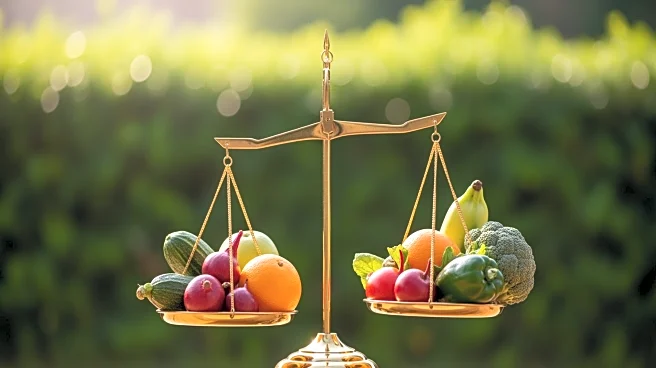What's Happening?
Ken Research has released a strategic market analysis titled 'Egypt Agriculture Market Outlook to 2030,' revealing that Egypt's agriculture market has reached a valuation of USD 43 billion. The report highlights Egypt's transition into a high-value, export-oriented
industry, driven by large-scale irrigation modernization, land reclamation programs, and the adoption of precision and climate-smart farming practices. The analysis underscores the role of government reforms, improved water management, and expanding market access across the Middle East, Africa, and Europe. The report provides insights into market dynamics, competitive positioning, and investment opportunities within Egypt's agriculture sector, which is crucial for employment and rural livelihoods.
Why It's Important?
The growth of Egypt's agriculture market has significant implications for U.S. trade relations, particularly in agricultural exports. As Egypt enhances its agricultural capabilities, it becomes a more competitive player in the global market, potentially affecting U.S. exports of agricultural goods. The modernization and expansion of Egypt's agriculture sector could lead to increased demand for U.S. technology and expertise in precision farming and irrigation systems. Additionally, Egypt's strategic location offers U.S. companies a platform for commercial activities in the Middle East and Africa, fostering robust commercial ties between the two nations.
What's Next?
Egypt's agriculture sector is expected to continue its expansion, with further investments in agri-tech, mechanization, and post-harvest infrastructure. The ongoing government reforms and improved water management practices will likely enhance Egypt's market access and export capabilities. U.S. companies may explore opportunities to collaborate with Egyptian firms in technology transfer and agricultural innovation. The evolving landscape may also prompt U.S. policymakers to reassess trade strategies and partnerships to capitalize on Egypt's growing market potential.
Beyond the Headlines
The transformation of Egypt's agriculture sector could have broader implications for regional food security and economic stability. As Egypt advances its agricultural modernization goals, it may play a pivotal role in addressing food shortages and boosting export earnings in the region. The focus on climate-smart practices and efficient water use aligns with global sustainability efforts, potentially setting a precedent for other countries facing similar challenges. The strategic developments in Egypt's agriculture sector may also influence U.S. foreign policy and trade negotiations in the Middle East and Africa.
















